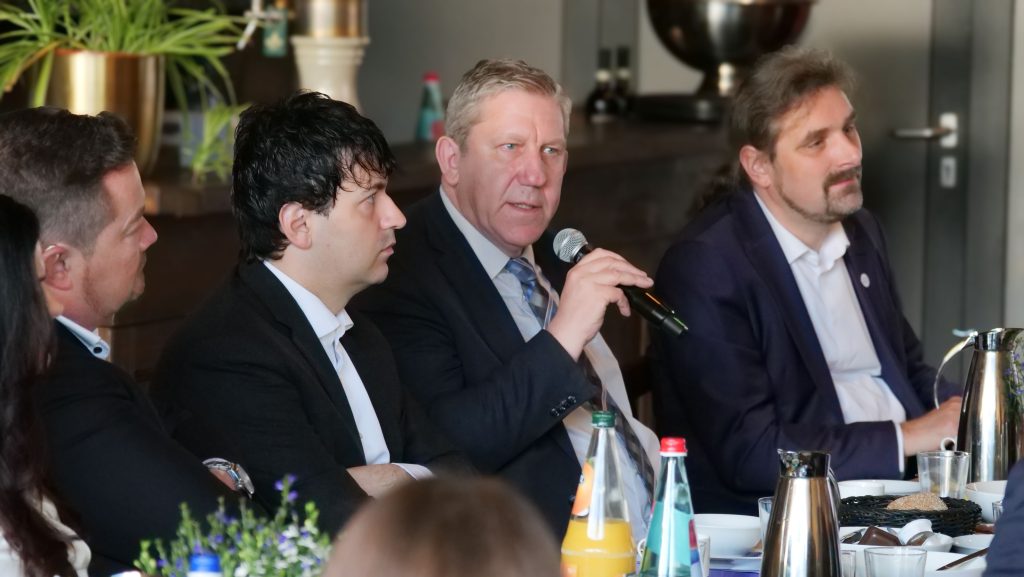Rethinking procurement structures: How innovation-friendly procurement can advance Germany’s security policy

At the 2nd Parliamentary Breakfast of the Agentur für Innovation in der Cybersicherheit GmbH (Cyberagentur), members of parliament, representatives of federal ministries and authorities discussed the strategic importance of smart procurement procedures. Central demand: less bureaucracy, more impact.
“If we don’t act, then democracy is finished.” With these clear words, Andreas Schwarz, Member of the German Bundestag, concluded his keynote speech at the Cyberagentur’s second Parliamentary Breakfast in Berlin on May 20, 2025. The event at the Habel am Reichstag brought together around 40 guests, including five members of the Bundestag, staff from MPs’ offices and representatives from federal ministries and internal and external security authorities. The focus was on a topic with direct relevance to security policy: How can innovative strength be strengthened and strategically managed through modern procurement formats?
The Cyberagentur’s Research Director, Prof. Dr. Christian Hummert, opened the event with a clear appeal: public procurement procedures must be measured against the technological challenges of the future. As a pioneer, the Cyberagentur has already shown how pre-commercial awards (e.g. PCP), ideas competitions and open-technology procedures can harness innovation potential.
In his keynote speech, Sven Weizenegger, Head of the Bundeswehr Cyber Innovation Hub, emphasized that Germany is no longer getting anywhere with good will when it comes to defence innovation: “Instead of being ready for war, we need to become ready for victory.” Speed, capital and real political will are needed to integrate start-ups and SMEs as agile partners in the security policy innovation architecture. Weizenegger referred to his hub’s portfolio: with over 180 projects and more than 40 solutions already brought to the troops, it shows what is possible – if processes are managed courageously.
In his keynote speech, Andreas Schwarz made it clear that the current procurement structures are not only too slow, but also risk preventing decisive leaps in innovation. Instead of rigid specifications, challenge-based formats, innovation quotas in major projects and the willingness to invest in risky but promising technologies are needed. Public procurement is not a technocratic side issue – but a first-rate security policy control instrument.
The subsequent discussions underlined the call for more room for maneuver for innovation-oriented players. The fact that the Cyberagentur, in close coordination with the Federal Police, is currently working on a model for implementing the “Public Procurement of Innovation” (PPI) – i.e. the direct transfer of funded research projects into market-ready products – was seen as a positive signal by many participants.
The professional exchange in open discussions continued with the final networking session. The Cyberagentur’s conclusion: Innovation needs freedom – especially from excessive bureaucracy. Only if political decision-makers recognize and promote the strategic value of smart procurement procedures can Germany maintain its digital and technological sovereignty.
